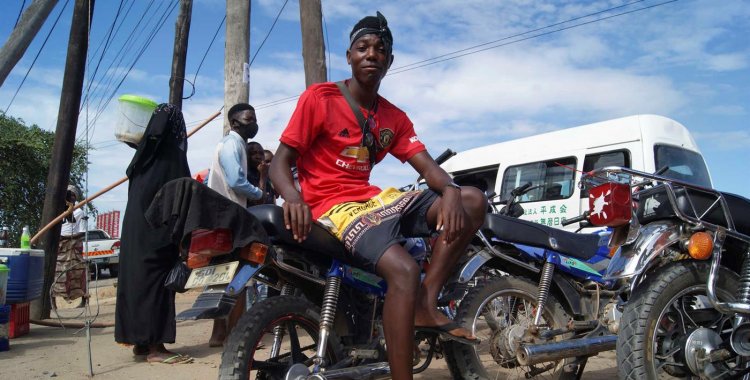The popular motorcycle taxi service is present in the nine municipalities of the capital, where thousands of motorcycle taxi drivers transport, from the early hours of each day, as many passengers, inside or outside the localities, and do not go unnoticed on the main or secondary roads.
Heard by Lusa, the motorcycle taxi drivers, commonly known as "kupapatas", recognized the problems they cause in road mobility and their involvement in the accidents, often fatal, that result, and considered that the measure announced by the Provincial Government of Luanda (GPL) on Tuesday encompasses advantages and disadvantages.
The reduction in road accidents is seen as the main advantage, but for those who rely on the motorcycle taxi service as their "breadwinner", they also fear seeing their income reduced as many also travel on the capital's main roads.
"One party has an advantage and the other has a disadvantage because most motorcyclists also travel long distances, others leave Benfica for Cacuaco and vice versa", motorcycle taxi driver Rufino Sapalo José, 38, told Lusa, suggesting that the ban on LPG is "good" because there have been many accidents.
The well-known coordinator of the motorcyclists' stop in the well-known "Três Prédios" area, Capalanga neighborhood, municipality of Viana, highlights, however, the "bad side" of this measure taken by the Luanda authorities.
"Because those (motorcycle taxi drivers) who travel on the (main) road are where they get their daily bread to take to their children, which can make it very difficult for us", lamented the motorcycle taxi driver, with 14 years on the road, also complaining the lack of a single stop and the daily pressure from police officers.
At the "Três Prédios" stop, very visible to those traveling on the Via Expressa, towards Cacuaco-Viana, there is also motorcycle taxi driver Almeida Paiva, 23 years old, who recognized the involvement of bikers in many accidents on Luanda's roads.
"Maybe that's why they're banning us," said the motorcycle taxi driver, who has been working for eight years, noting that, sometimes, they need to use the main road to travel between municipalities.
"And we always need to travel on the main roads with our motorbikes", noted the motorcycle taxi driver.
The Provincial Government of Luanda banned the circulation of motorcycles on some of the capital's main roads with the aim of improving circulation and reducing accidents, which totaled 768 in the first half of the year.
Accidents caused by mopeds, motorcycles, tricycles and quadricycles resulted in 134 deaths and 725 injuries, of which 368 were serious, according to data presented on Tuesday by the head of the Department of Traffic and Road Safety of the Province of Luanda, superintendent Simão Saulo.
With a daily journey marked by difficulties, ranging from the condition of the roads to pressure from police inspection, Celestino António, a motorcycle taxi driver for five years, also pointed out the advantages and disadvantages of the Luanda authorities' measure.
"Yes, in fact accidents with motorcyclists have been constant, many of us have been hit by trucks and, therefore, it is really difficult and complicated", he said, arguing, however, that "they have to travel on the main roads to be able to obtain some values."
The well-known "Brazilian" street, in the Caop area, also in Viana, one of the most populous municipalities in Luanda, is taken over daily by dozens of motorbikes, some with two wheels and others with three, that provide taxi services, driven mainly by young people.
Vendors, passengers, motorcycle taxi drivers and their respective "lotadores" (passenger recruiters) pass each other there in a considerable flood and a constant coming and going of motorcycles.
Gelson Jerónimo Cristóvão, 21 years old, who has been on the road for eight years, points to the lack of employment as the main reason for the hundreds of young people who are joining the motorcycle taxi service, as a source of survival, saying that the day has been a "long rush and constant battle".
"Here the police really bother us a lot, all the time they just want money", complained the young motorcycle taxi driver, who in statements to Lusa, aboard his tricycle, disapproved of the authorities' new measure.
"It's very negative (the measure), because we're in a bad place, we don't have a job, we're in a bad place," he said.
Changing the tire on his tricycle, also on the "Brazilian" street, we also met motorcycle taxi driver Alexandre João Manuel, 31 years old, who complained about working there under "pressure from the police", in a stop that he says was "very confusing" .
Regarding the ban on traffic on the capital's main roads, Alexandre, with ten years of experience, declared to Lusa that "the measure is quite valid, because many colleagues do not respect the signs when they are underway."
"We think it's a good measure, but we also ask the Government for jobs for young people", he concluded.







